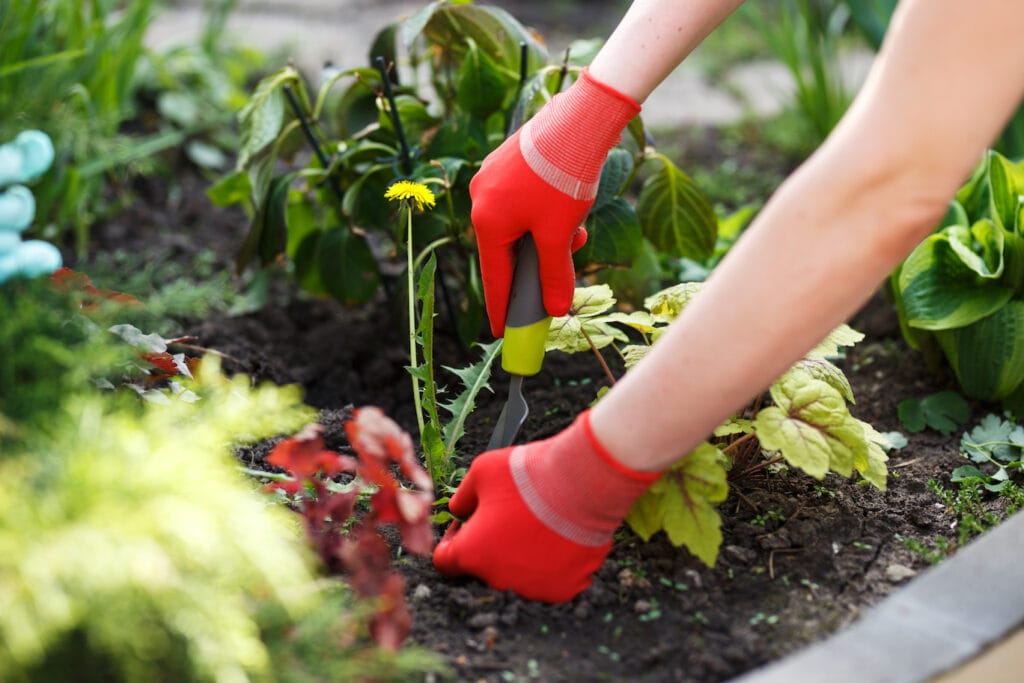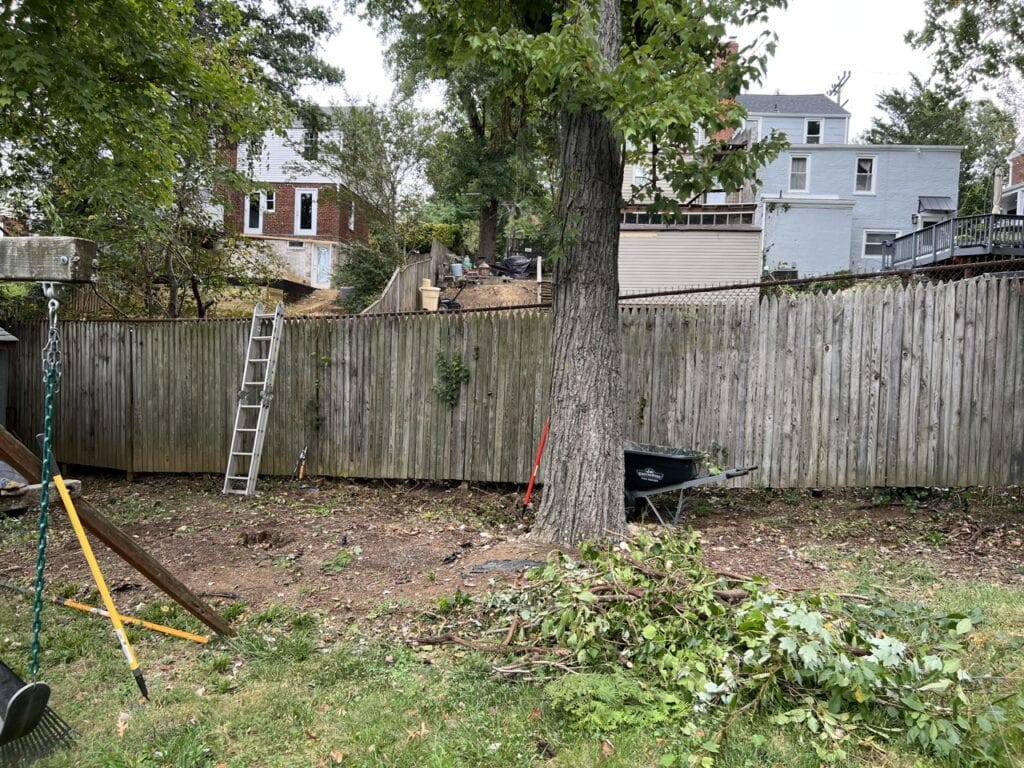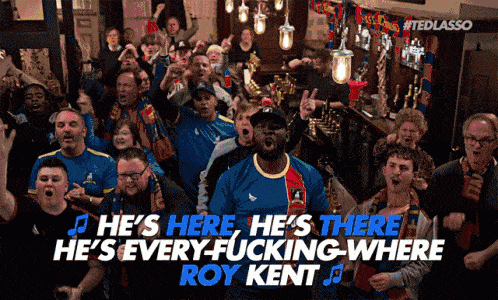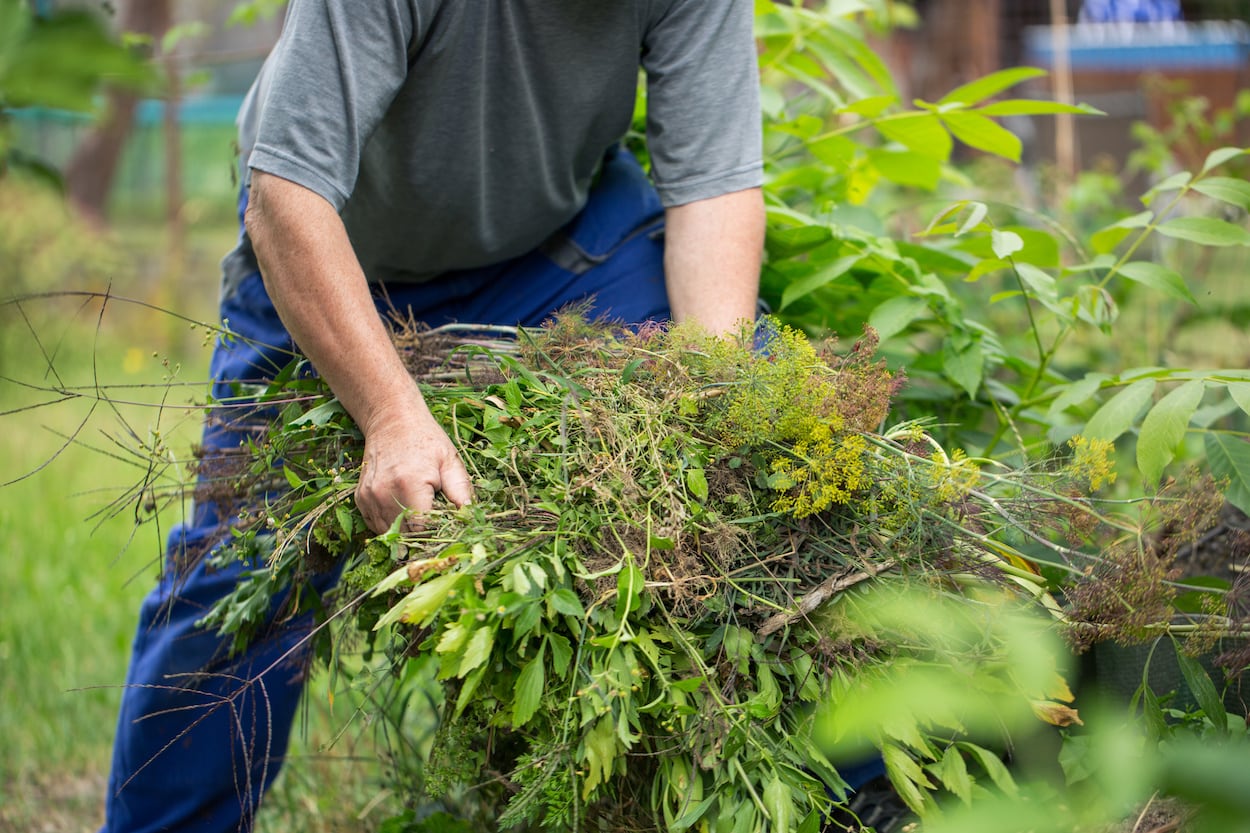
On Friday, 9/23 I hopped off a very productive Build Mode Live session, ready and eager to relaunch this very website. Cue the record scratch: to my dismay, I checked Twitter and immediately found one of my favorite WordPressers in a state of distress over comments made during WPTonic’s live Friday panel for their episode 730 recording.
In the episode 730 WP Tonic panel, the discussion turns toward Twilio’s announced decision to consciously direct the layoff of 11% of its workforce in such a way that the layoffs reduce impact to workers from marginalized communities (paywalled link; bypass using your browser’s reader mode).
From my perspective, 2 of the hosts (Jonathan Denwood and Stephanie Hudson) ignore nearly the entirety of the content of the Fortune article they’re discussing, and began riffing on “wokeness” and reverse-racism, with guests John Locke, Vito Peleg, and Daniel Schutzsmith patiently attempting to diffuse the situation calmly.
Jonathan Denwood smashed through his guests’ attempts pretty enthusiastically from my vantage point, really doubling down hard on his spicy take and ratcheting up the tension. In typical fashion, between Jon Denwood and co-host Stephanie, a lot of the responsibility for the contention was dumped on Locke, their podcast and ostensible business partner. Take from the recounts and the snippet of video provided what you will, but it was flatly racist, as far as I’m concerned.
Now, being fully aware that I am not a guest on the show, that I cannot control the abhorrent viewpoints espoused on other people’s podcasts, and that I cannot change anyone’s mind who isn’t willing to change it themselves, the deflection and gaslighting Jonathan Denwood and Stephanie attempted to in the discussion and have subsequently attempted afterward on Twitter is absolutely despicable and racist any way you shake it.
This post isn’t for them. I’m addressing you — someone who ostensibly cares or isn’t sure what to make of the situation – so these people can’t retcon their way out of it, and to launder their reputations as trustworthy members of the community.
Back to the Gardening Metaphor…
I’ve repeatedly had this intrusive thought while tending to my yard, that racism is like a weed, and thought to myself, “wow, that’s an ideal topic for a blog post” and it just never went anywhere. Yay. My time has arrived.
Have you ever acquired a property that has fallen into neglect, had issues concealed, or been adjacent to other properties that have fallen into disarray?
Well, if you have, my heart goes out to you. Last fall my wife and bought a decent house in an overlooked suburban enclave located closer to the DC Beltway than we’d like, and for far cheaper than other similar houses. We eventually discovered that our new-to-us wasn’t particularly well-cared for by the previous tenants, and their landlord just wanted out, pretty much authorizing the selling agent to paper over as many flaws as possible without actually fixing them. Fixtures were coming off the walls within weeks. We sort-of knew what we got ourselves into, though.
So, imagine our total lack of surprise this past spring and summer when thousands of dandelions and plantain weeds infested the green, idyllic yard pictured in our listing photos.

The previous occupants never did a thing. Being that my wife and I come from farming folks, and this is the legacy we bought, we started in on our weeds with trowels and buckets. Then I bought a mattock and dozens of lawn bags, which worked really well but was brutal on me and the yard.
At some point in this whole weeding odyssey, a neighbor smugly remarked to me, “One day, you’ll learn from me and just mow over it all and call it a day”. Well, that’s how I ended up with a yard full of weeds to begin with, isn’t it, Smart Guy?
How is This Relevant to You and the WordPress Community as a Whole?
This may be mixing metaphors a bit unskillfully, but there’s a recent anecdote about a bartender who immediately recognized his punk dive bar was being infiltrated by a neo-Nazi customer with the intent of establishing a foothold and immediately booted the guy. It’s worth acquanting yourself with.
Similar, older parallels to that anecdote go something like this:
The way we as white-identifying people deal with racist incidents is the way a lot of people deal with weeds. We don’t pull them out by the taproots. We don’t address them at sufficiently effective scale for sufficiently effective duration. We look for poisons or we mow over it and move on. Maybe we hire contractors to do the work for us to spare us some pain, but they usually aren’t as thorough as a dedicated homeowner is. Then the weeds come back the next spring, we cuss a little bit, and keeping mowing, blowing the seeds everywhere and making it everyone else’s problem.
But then sometimes a neighbor really lets stuff go. And it starts to gobble up their whole yard. And part of your property. You find yourself hacking and chopping and pulling and aching afterward, taking on huge chunks of doing someone else’s work over weeks and months that someone else should’ve been addressed incrementally over decades. That’s what modern anti-racism work feels like from my perspective.
This is happening on our watch. In our midst. Being perpetrated by people with the social standing and economic influence to get away with it. They are comfortable saying racist things in white-dominated spaces that they control. If we let their racism slide, we don’t get to use phrases like “this isn’t us, this doesn’t represent the WordPress community”. Racism unchecked means it IS US.

I’ve been battling a lot of ivy along that wall. The yard uphill was covered in about 4-10 feet of ivy, which is a really apt metaphor for racism. Ivy gets into whatever cracks it can and creeps up little by little and by leaps and bounds depending on the season and circumstances. Ivy is not particularly clever or creative; it is hardy and agile, thusly going where it is left to thrive, seeking sun and hydration, and depriving everything around it of nutrients. Ivy relies on the ignorance and greed of some animals, and the complacency of others to continue spreading, until it has engulfed absolutely everything in its path and compromised its integrity. So, yeah, ivy is a lot like racism.
In Closing…
I chose the gardening metaphor, because white people own homes more than any other demographic in America. As a monolith we have a tendency to control spaces to our liking, and how bodies move through those spaces. We really like to tell everyone else how to garden. There’s probably not a metaphor more apt for conveying how racism infiltrates our culture.
Additionally, I wrote this post because of a frequent refrain that issues like racism need to be discussed in long form content, because venues like Twitter don’t serve us well. This writing comes at the expense of other things I should be doing like cleaning my house, finishing updating my resume, doing my taxes, etc. There’s an energy cost to committing these thoughts to the page, energy I didn’t budget for this week, and from my viewpoint that is a form of theft. It makes me really annoyed to have to spend my time this way.
But this is a choice and an inconvenience for me, a thing that has happened and not the whole of my identity or yet another example of mistreatment I’ve been subjected to on the basis of the color of my skin.
Black women speaking out like Nyasha and Allie don’t have that luxury. They can’t turn this off and walk away like a TV show they don’t want to watch. They are unwilling participants every time a white person in their professional sphere opens their mouths and says something reprehensible and then reflexively demands to not be held accountable. Their reputations are at stake every time they call attention to microaggressions and egregious incidents alike. By contrast, I may suffer some momentary blow to optics for my participation in the dialogue.
People who look like you and I (assuming you’re a member of Club Whitey) can claim ignorance, we can claim that we’ve been set up, claim that we’ve been attacked — and it’s supposed to be all good. But Black women like Allie and Ny are supposed to explain their grievances in detail. To give a full accounting for their rationale. Expected to shepherd the clueless to the promised land. And then are summarily dismissed anyway.
It’s simply not fair to heap all that negative energy and uncompensated labor on their shoulders. They have done enough and need a rest.
Even now, we’re watching in real time as a number of the personalities involved invoke victimhood as means of diverting responsibility and shifting the narrative to be about what has been done to them as opposed to answering for their hurtful actions and words.
Racism is a weed, and the world (America in particular) is a fixer-upper absolutely covered in weeds. This can go 1 of 2 ways now: the WordPress community can do the back breaking work to help remediate a legacy of centuries of deferred maintenance or we can let it crumble further, for another generation to deal with.
We need to pull out these weeds by their damn roots. Now, not tomorrow.
Updates
So many great folks in WordPress either had events planned or generated content in repsonse to tackling the issue of racism and bigotry in our community this week, head-on.
Nyasha Green, editorial director of MasterWP, wrote an incredibly thoughtful response on September 27, 2022 that serves as a crash course in implicit bias and microaggressions, and why these thought processes behaviors are very hurtful and stealthy tools in the tactical kit of racism and the oppression of white supremacy.
On Thursday, September 29, 2022 Cami Kaos and Courtney Patubo Kranzke held a Meetup workshop to go over the basics of Diversity, Equity, Inclusion, and Belonging (DEIB). Their goal is to make the WordPress community a more inclusive and welcoming community where everyone can feel a sense of belonging.
In the video below they discuss:
- What is DEIB
- What is the importance of DEIB work
- How it applies to the WordPress community
This is really required watching: full of snackable, actionable, valuable tips for folks wanted to do work to move toward a more inclusive and embracing mindset. I’m not joking by characterizing this workshop as one of the most straightforward explanations of dismantling our own privilege and mitigating hostile environments for folks from underrepresented communities that I’ve ever heard and seen.
Allie Nimmons and Michelle Frechette of Underresprented in Tech released an amazing podcast episode on Sept 30, 2022 that handily dismantles the rationales that drive the erroneous thinking behind reverse-racism. Please listen and share.
Speaking of Allie Nimmons, she’s reaching out to all potential allies, offering a ticketed, 2 hour long workshop on October 4th. Her intent is to provide mindset shifts and actionable goals for those of us who are struggling with effective allyship. Highly recommended that you attend, but Allie has also promised to provide a recording who can’t make the session in person.
#WPDiversity, WordPress’s diverse speaker training group community initiative, is offering a free 2.5-hour interactive watch party on October 13th. The objective is to learn how to create welcoming and diverse WordPress Meetups and WordCamps for your WordPress community. This workshop was created by Allie Nimmons, Aurooba Ahmed, David Wolfpaw, and Jill Binder for WordCamp US 2019.
Wow, Allie is like the Roy F*cking Kent of WordPress diversity training – she’s absolutely everywhere!

WP Watercooler held a panel on September 30, 2022 to address microaggressions in the WordPress community, our responsibilities in addressing them, and the complexities we face in doing so. Jason Tucker, Sé Reed, and John Locke knocked it out of the park with this one, too. Like, share, and subscribe!
The same day Courtney Robertson, Web Design and Developer Advocate for GoDaddyPro shared her tour of the Carlisle Indian School in solidarity with Canadians observing Orange Shirt Day – an important and macabre artifact of our nations’ foundational racism against indigenous peoples. I come from the same general area that Courtney hails from and had no idea this museum existed. Indeed we have much to learn and much to unlearn.


Comments
8 responses to “Racism is a Weed”
Thanks, Tom. You really nailed it. I could barely watch the YouTube. Not only did the largely ignore the Fortune article, they ignored the actual letter by the CEO of Twilio, not to mention all the numerous studies out there about how women and minorities are more effected by layoffs than white men and last to be hired back. So Twilio acknowledging this fact in a single sentence in the letter should be something to be applauded as an example other companies should follow not scorned as being too woke.
damn tom. this is 🔥
I am incredibly grateful for this post. I’m sorry it needs to exist. But people like you are the reason I have not given up trying to make this space just a little bit better.
Allie, this means a ton. I might have been in the web and WordPress game for a long minute but you, Ny, and the rest of the MasterWP team are teaching me a ton I never picked up before: about the tech, the people, AND myself. Imagine what we can accomplish when we continue to put our backs into ruthlessly lifting each other up! 💪 Unfortunately all too often it does take a
littlelot of weeding to grow a thriving garden, but the payoff is worth it 🌱💛Yes! Thank you for saying this so well, and for framing it correctly. I appreciate this post more than I can convey.
Michelle, I meant to reply earlier: Thank you so much… Much gratitude to you for your influence, for your support, and your patience with a lot of us whose worthiness of that patience is often dubious, myself included. I’m looking forward to learning more from you and from Allie, to help steward the community to get to a place where everyone is actively embracing one another. Long journey, that.
[…] WordPressers… a live discussion episode had many people stand up and take notice. Tom Finley explained it exhaustively in a post titled “Racism is a Weed”. While Nyasha Green at MasterWP […]
[…] a forum I control and a space where vulnerability comes easier. I can use it as a platform to combat inequity or I can use it as my second brain. More that anything, though, it’s a calmer brook for words […]